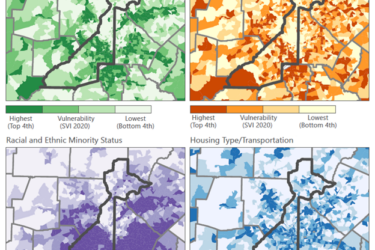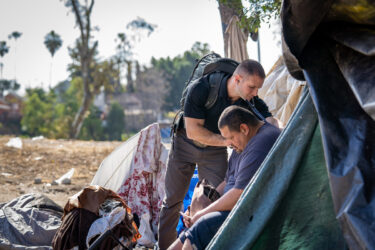
Attending George Washington University in Washington, D.C. costs $68,625 a year, or $274,500 for the four years it takes to earn a bachelor’s degree, underscoring its reputation, as The Washington Post recently wrote, “as a pricey school for rich kids.”
However, this month the university in the heart of the nation’s capital opened a food pantry to help the growing number of students on its campus who struggle to afford both higher education and food, an essential component of good health and an area that often underscores the health divide.
George Washington is not the only institution of higher education grappling with hunger on campus.
The College and University Food Bank Alliance, which supports campus food banks, has 362 members, according to its website. That is a sharp increase from the 160 members it had in 2014, according to the Post, and 15 members in 2011.
To be sure, many universities and colleges now cost more than $60,000. GWU, like many schools, is increasing aid and said more than 60 percent of its students receive financial aid. However, officials at George Washington University found hunger persists.
“A survey in April of undergraduate and graduate students at GWU found 43 percent of respondents said they at some point had experienced not having enough to eat, and 52 percent were aware of others who were going hungry,” the Post reported.
Not having access to enough nutritious food can impact not only health but also education, making it hard to concentrate. Hunger also is tied to social and behavioral problems, according to Feeding America, one of the largest organizations in the United States combating the issue.
Temple University professor Sara Goldrick-Rab, a George Washington alumna who now studies students’ affordability issues, told The GW Hatchet such pantries help ease hunger but don’t solve food insecurity: “They will help to the extent … Band-Aids will help,” she told the student-run newspaper.
GWU’s pantry, part of a partnership with Capital Area Food Bank and stocked by volunteers, opened on Oct. 1.








